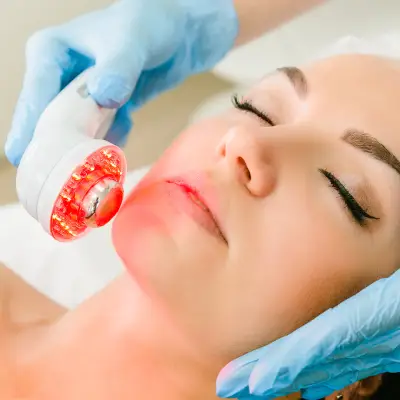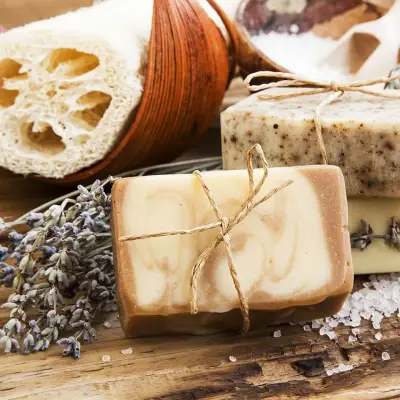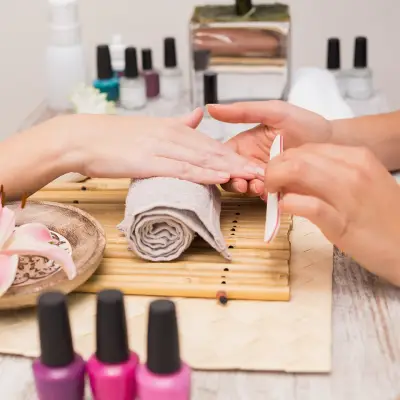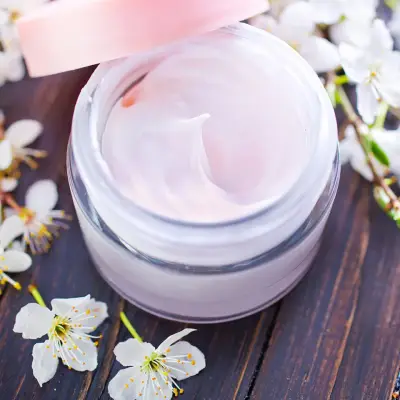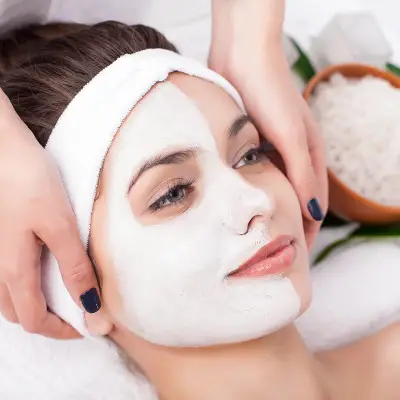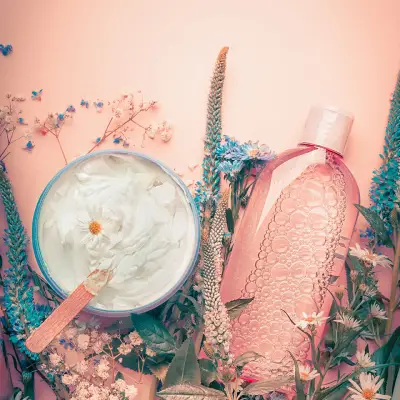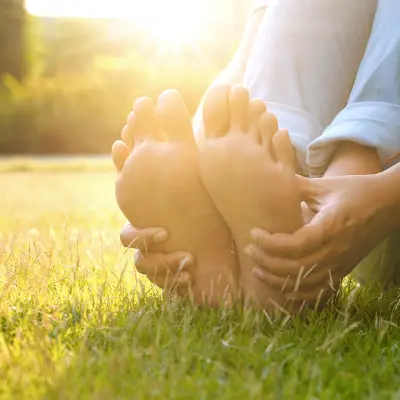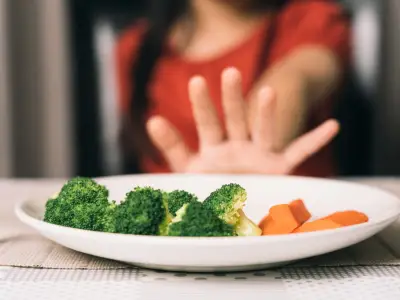If you want to improve the quality of your hair, Ayurvedic hair treatment shines as a natural way to achieve healthy, luscious locks. Rooted in the principles of Ayurveda, this ancient Indian practice focuses on balance and harmony within the body to promote hair growth, prevent hair loss, and maintain overall hair and scalp health.
Let's delve into Ayurvedic hair care, breaking down its key components and benefits and how to incorporate this age-old wisdom into your modern hair care routine.
Jump to:
Understanding Ayurveda and Hair Health
Ayurveda, the science of life, views hair care as integral to holistic well-being. According to Ayurvedic philosophy, the health of your hair is deeply connected to your overall physical and mental balance. Three fundamental energies or doshas – Vata, Pitta, and Kapha – govern your bodily functions. Ayurvedic hair treatment targets these doshas to address hair issues at their root, quite literally!
The Ayurvedic Approach to Hair Care
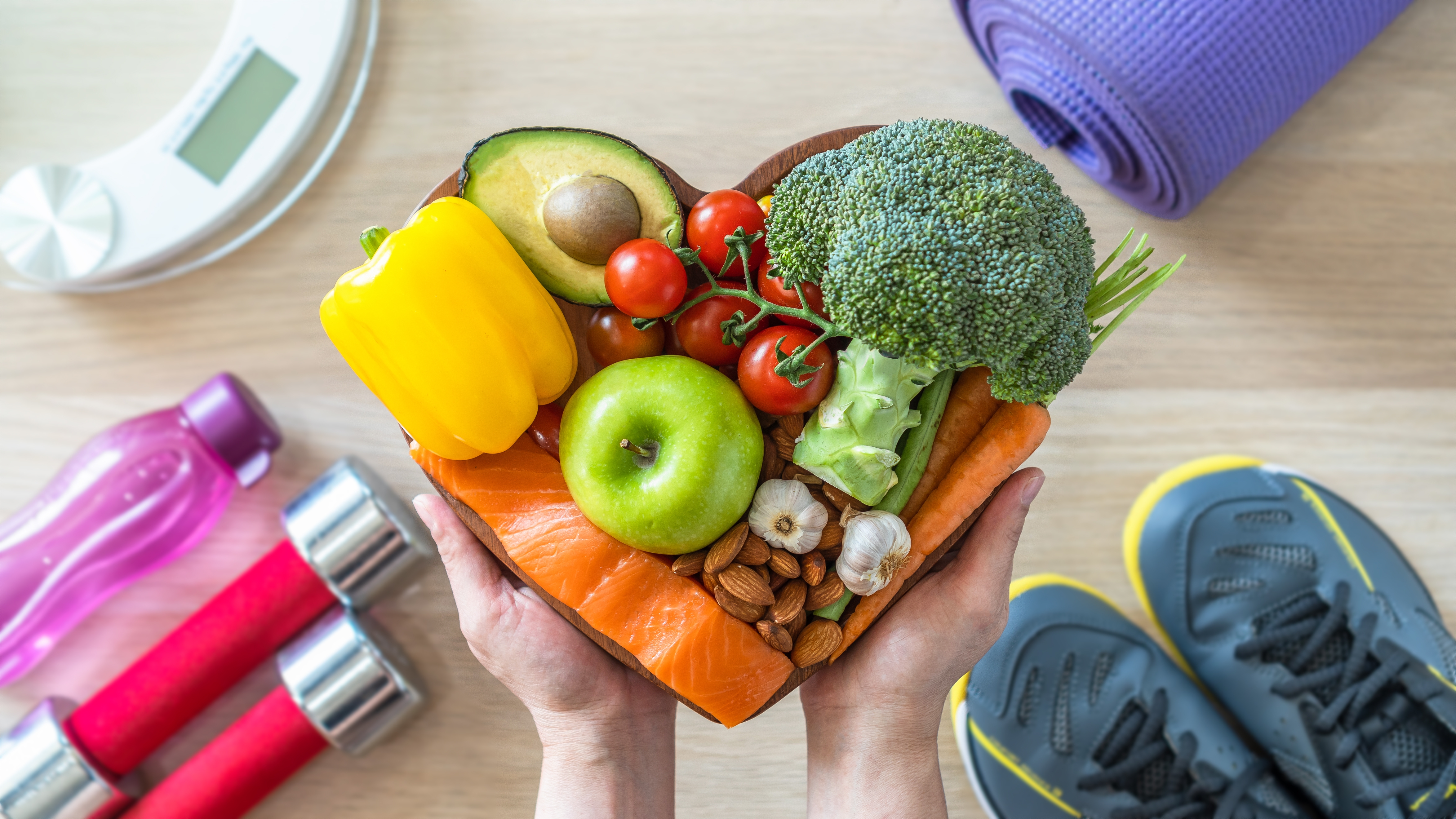
Ayurvedic hair care is a ritual that involves nourishing the body from the inside out. Here’s how:
Diet and Lifestyle: The Foundation of Hair Health
In the Ayurvedic belief system, beauty and health start from within. So, the cornerstone of vibrant hair lies in your diet and lifestyle choices. Ayurveda encourages a diet that harmonises with your dominant dosha - Vata, Pitta, or Kapha. This tailored approach ensures that you consume nutritious and balanced foods.
The Role of a Balanced Diet
A diet brimming with fresh fruits, vegetables, nuts, and seeds provides the body with the essential vitamins, minerals, and antioxidants to support hair health. For instance, leafy greens are loaded with iron and zinc, critical for hair strength and growth, while nuts and seeds offer vital fatty acids that lend a natural sheen to your mane.
Lifestyle Practices for Stress Reduction
Stress is a known antagonist in hair health, often leading to issues like hair fall and premature greying. Ayurveda introduces calming practices such as yoga and meditation, offering a sanctuary of peace for the mind. These practices also enhance circulation and promote detoxification, setting a fertile ground for hair to thrive.
Harnessing the Power of Natural Ingredients
Ayurvedic haircare is rich in natural herbs that boast incredible benefits for hair. Ingredients such as Amla, Bhringraj, and Neem stand at the forefront, celebrated for their efficacy in nurturing the scalp and strands.
- Amla, The Superfruit for Hair: Amla, or Indian Gooseberry, is a powerhouse of vitamin C. This antioxidant-rich fruit strengthens hair follicles, promotes hair growth, and adds a lustrous shine to the hair. Its ability to tackle premature greying makes it a cherished component of Ayurvedic hair care.
- Bhringraj, The King of Herbs: Bhringraj is known as the 'king of herbs' for hair rejuvenation. It is believed to invigorate hair growth and combat hair loss. Its cooling properties also soothe the scalp, relieving ailments like dandruff and scalp irritation.
- Neem Nature's Scalp Cleanser: With its antibacterial and antifungal qualities, Neem is a boon for scalp health. It effectively cleanses the scalp, preventing dandruff and scalp acne, which can hinder hair growth. Neem also nurtures the scalp with its moisturising benefits, ensuring a healthy base for hair to grow.
The Ritual of Oil Massage
The practice of oil massage, or 'Snehana', is a sacred ritual in Ayurvedic hair care. This involves massaging the scalp with warm oil infused with hair-beneficial herbs. This process is instrumental in enhancing hair health.
Oil massages deeply nourish the scalp, moisturising it and preventing dryness and flakiness. Massaging improves blood circulation to the scalp, which means more nutrients and oxygen are delivered to the hair follicles, stimulating growth and revitalising the hair.
Beyond the physical benefits, the massage is a moment of tranquillity and self-care. It's an opportunity to disconnect from the hustle of daily life and connect with yourself. This relaxation can further aid in reducing stress levels, indirectly benefiting hair health.
The Golden Rule of Ayurveda for Hair Care
Ayurveda’s golden rule for hair care is simple: keep your doshas balanced. This means adopting a holistic lifestyle that includes a proper diet, adequate sleep, regular exercise, and stress management. When your doshas are in harmony, your hair will likely be healthy, strong, and vibrant.
Benefits of Ayurvedic Hair Care
Adopting an Ayurvedic approach to hair care is a commitment to nurturing your hair’s natural vitality and lustre. Here are the key benefits:
- Holistic Health: Ayurveda looks at hair care as a part of overall health. By addressing nutritional, emotional, and physical balance, Ayurvedic practices contribute to healthier hair and a healthier you.
- Natural Solutions: With a focus on natural ingredients, Ayurvedic hair care minimises the risk of chemical damage, offering sustainable, long-term benefits without adverse effects.
- Personalised Care: Recognising the unique nature of every individual, Ayurveda provides personalised care routines based on your dosha. This tailored approach ensures that hair care is effective and harmonious with your body constitution.
- Preventive and Curative: Ayurveda excels in preventing future issues through a balanced lifestyle and diet, reducing the likelihood of hair loss, thinning, and greying.
- Stress Reduction: By incorporating stress-relieving practices such as yoga and meditation, Ayurvedic hair care tackles one of the root causes of hair issues, promoting physical, mental, and emotional wellbeing.
How to Make Ayurvedic Hair Treatment at Home
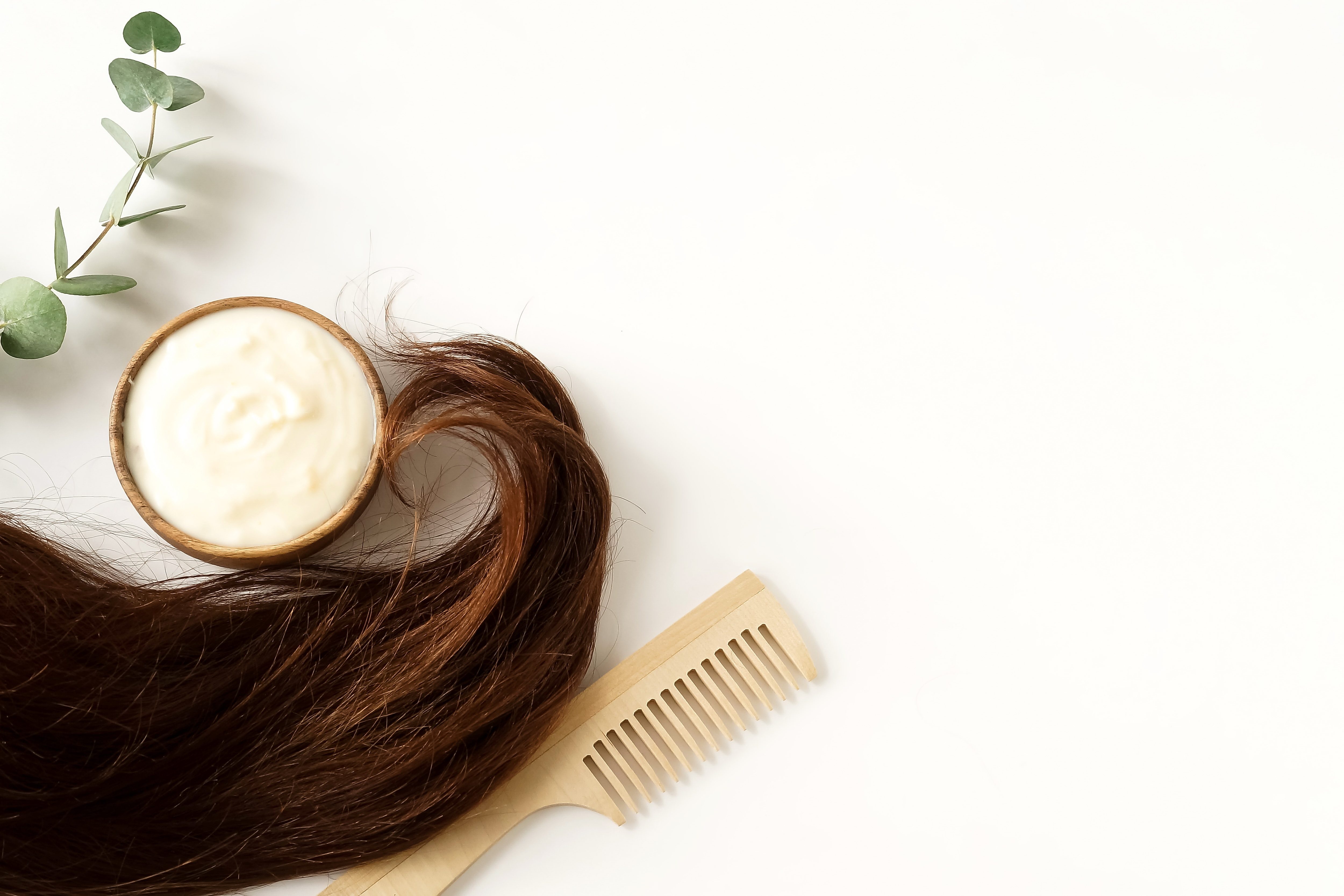
Creating your Ayurvedic hair care concoction is simpler than you might think. A basic Ayurvedic hair mask involves a blend of powerful, hair-loving herbs mixed with a natural binding agent to create a potent paste for your hair and scalp. The Amla powder, Brahmi powder, and yoghurt combination is a stellar starting point due to its simplicity and effectiveness. Here’s a step-by-step guide to making and applying this rejuvenating hair mask:
Ingredients
- 2 tablespoons Amla Powder: Rich in Vitamin C, Amla powder promotes hair growth and enhances hair volume.
- 2 tablespoons Brahmi Powder: Known for its calming properties, Brahmi powder reduces stress-related hair loss and strengthens the hair follicles.
- Enough Yoghurt to form a paste: Yoghurt, being rich in proteins and fats, serves as an excellent base for the mask, offering moisture and nourishment to the hair and scalp.
Instructions
- Mix the Ingredients: Combine the Amla and Brahmi powders in a clean bowl. Gradually add yoghurt to the mixture until a smooth, spreadable paste forms. Ensure the consistency is smooth enough to prevent dripping during application.
- Apply the Mask: Part your hair into sections and apply the mask evenly onto your scalp and hair. Using gloves can prevent your nails from staining, especially when using potent Ayurvedic powders.
- Massage Gently: Once applied, massage your scalp gently with your fingertips. This helps evenly spread the mask and boosts blood circulation, enhancing the absorption of nutrients.
- Leave it On: Allow the mask to sit for about 30 minutes. This resting period lets the active ingredients penetrate deeply, nourishing the hair follicles and scalp.
- Wash Off: Rinse the mask off with lukewarm water, followed by a mild shampoo. Finish with a conditioner if your hair tends to dry out, focusing on the ends rather than the scalp.
- Regular Use: For best results, incorporate this mask into your hair care routine once a week. Over time, you’ll notice your hair becoming stronger, shinier, and more voluminous.
Addressing Hair Thinning and Loss with Ayurveda
Hair thinning and loss are common concerns, and Ayurveda offers several strategies to combat them. From herbal treatments that stimulate the scalp to dietary adjustments that fortify hair from within, Ayurveda looks at hair loss comprehensively. Regularly using Ayurvedic oils like Brahmi or Bhringraj can significantly improve scalp health and reduce hair fall.
Disadvantages and Side Effects of Ayurvedic Hair Care
While Ayurvedic treatments are loved for their natural approach and holistic benefits, like any treatment, they come with their considerations. It’s important to approach Ayurvedic hair care with an informed perspective, acknowledging that natural does not always mean risk-free for everyone. Here’s a rundown of potential disadvantages and side effects:
- Allergic Reactions: Even natural ingredients can trigger allergic responses in some individuals. While beneficial for many, herbs like Amla, Bhringraj, or Neem could cause irritation or allergic reactions in others.
- Patch Test Importance: Performing a patch test is crucial before incorporating any new herbal treatment into your routine. This involves applying a small amount of the product to a discreet area of the skin to check for adverse reactions.
- Individual Variability: The effects of Ayurvedic treatments can vary greatly from person to person. Factors such as individual dosha imbalances, lifestyle, and existing health conditions can influence the effectiveness of these treatments.
- Time for Results: Ayurvedic remedies often require consistent use over time to see visible results. This gradual process can be a disadvantage for those seeking quick fixes to their hair issues.
- Availability of Authentic Products: Finding genuine Ayurvedic products can sometimes be challenging. The market is flooded with products claiming to be 'Ayurvedic' but may not adhere to traditional formulations or might contain harmful additives.
- Professional Guidance: For best results, Ayurvedic treatments should ideally be undertaken under the guidance of a qualified Ayurvedic practitioner. Self-diagnosis and treatment without professional advice may not yield the desired outcomes and exacerbate existing conditions.
- Cost: Depending on where you live and the availability of ingredients or products, embarking on an Ayurvedic hair care routine can be more expensive than conventional products, especially if sourcing high-quality, authentic ingredients.
Common Questions About Ayurvedic Hair Care
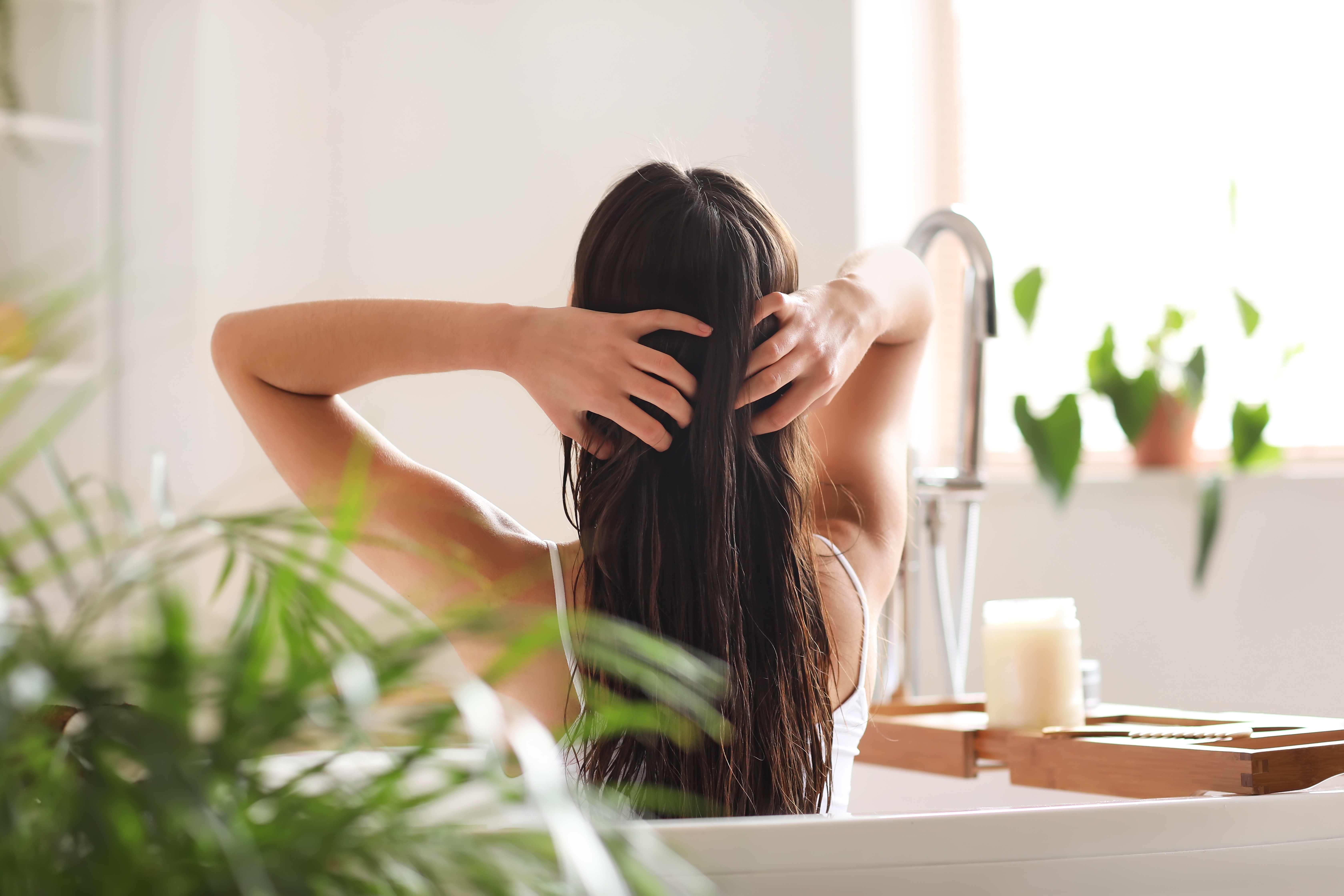
How Often Should You Wash Your Hair According to Ayurveda?
Ayurveda does not prescribe a one-size-fits-all answer to how often you should wash your hair. Instead, it suggests that washing frequency should be based on your dosha type and the current state of your hair and scalp health. Less frequent washing is typically advised to prevent drying out the scalp and hair.
Which oil is good for hair loss in Ayurveda?
The answer often depends on your specific dosha imbalance. For example, coconut oil is cooling and is particularly beneficial for those with a Pitta dosha imbalance, while sesame oil is warming and better suited for Vata imbalances. When used for regular massage, these oils can profoundly affect your hair's health and texture.
Can Ayurvedic Treatment Regrow Hair?
By addressing imbalances within the body and using natural remedies, Ayurveda can help reduce hair fall and promote regrowth. However, results vary from person to person, depending on their unique dosha composition and the underlying causes of their hair issues.
How Does Ayurveda Thicken Hair?
Ayurvedic treatments can contribute to thicker hair by improving follicle health and preventing hair breakage. Regularly using Ayurvedic hair masks and oils can fortify the hair strands, leading to a fuller, more voluminous mane.
What Deficiency Causes Hair Fall According to Ayurveda?
Ayurveda identifies several potential causes of hair fall, including nutritional deficiencies. A lack of essential nutrients like vitamins, minerals (especially iron and zinc), and proteins can weaken hair follicles and increase hair loss. Ayurveda emphasises a holistic diet tailored to one's dosha to combat these deficiencies.
Which Ayurveda is Best for Hair?
The concept of "best" in Ayurveda varies by individual needs and dosha imbalances. However, general beneficial practices include using Amla for its high vitamin C content, Bhringraj for scalp health and hair growth, and Neem for its cleansing properties. Tailoring these treatments to address specific concerns and dosha imbalances can enhance their effectiveness.
What Does Ayurveda Say About Hair Thinning?
Ayurveda links hair thinning to several factors, including an imbalance in the body's doshas, particularly Pitta dosha, poor diet, stress, and improper hair care practices. Treatments focus on rebalancing the doshas through diet, lifestyle changes, and specific herbs and oils that promote hair density and health.
How Can I Reopen My Hair Follicles Naturally?
Reopening hair follicles naturally is possible with Ayurvedic practices that improve scalp health and circulation. Scalp massages using warm herbal oils can rejuvenate dormant follicles, while treatments like herbal rinses and masks detoxify and unclog the follicles, promoting hair regrowth.
Which Oil is Good for Hair Loss in Ayurveda?
Various oils are recommended for hair loss in Ayurveda, depending on your dosha imbalance. Coconut oil is beneficial for cooling Pitta dosha, while sesame oil is ideal for balancing Vata. Bhringraj oil is universally recommended for stimulating hair growth and reducing hair loss.
Recommended for you!
Best SellersExplore the Rich Traditions of Ayurvedic Hair Care with Centre of Excellence
Discover Ayurvedic wellness with our Ayurvedic Skincare and Haircare Diploma Course, crafted to unveil the secrets of ancient Ayurvedic practices for modern hair care needs.
Why Centre of Excellence?
- Inclusivity: We believe knowledge should be accessible to all, so our courses are priced to welcome everyone interested in learning.
- Learn on Your Terms: Our courses are designed for convenience, allowing you to learn at your own pace and fit your studies around your existing commitments.
- Comprehensive Curriculum: Dive into a wide range of topics that span the breadth of Ayurvedic skincare and haircare, ensuring a well-rounded understanding of traditional practices.
- Supportive Learning Environment: With your enrolment, you'll receive personalised guidance from our tutors and join a vibrant community of learners, providing support throughout your educational journey.
Special Offer
We're excited to offer our Ayurvedic Skincare and Haircare Diploma Course at an exclusive discounted rate of £29 for a limited period, saving you over £100!
